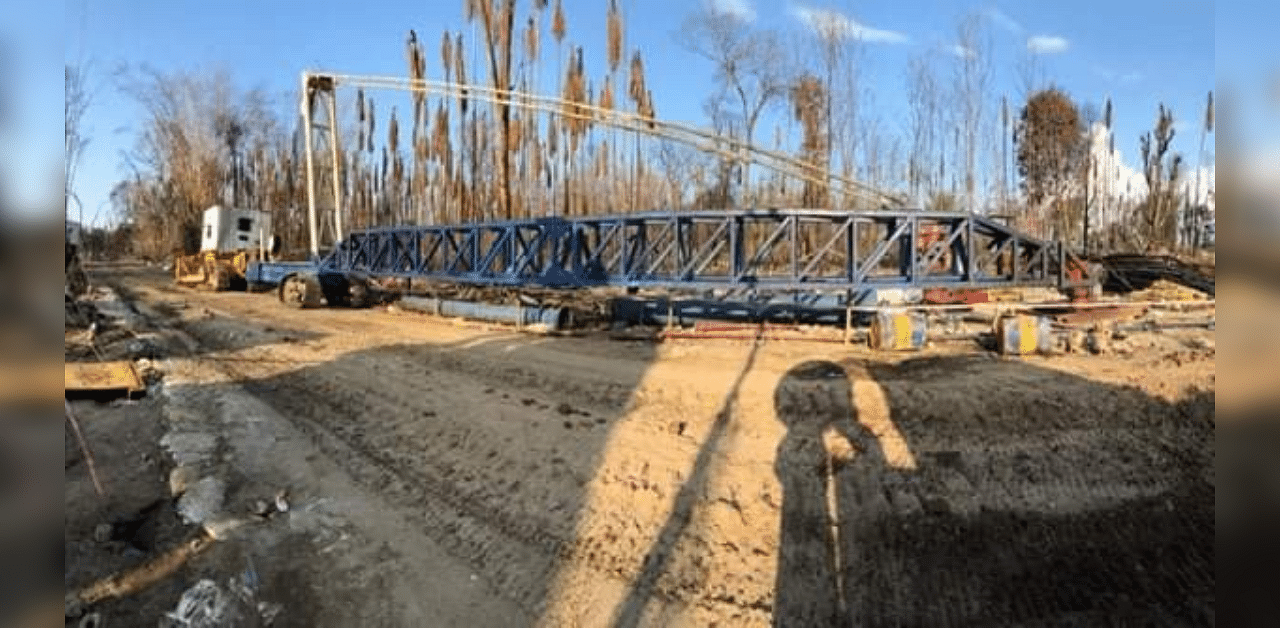
The oil spill due to the blowout in OIL's gas well at Baghjan in Assam's Tinsukia district destroyed about 60-70 hectares of biodiversity-rich land, which is one of the important refuges for several endangered and range-restricted species.
This was stated in a report by Dehradun-based Wildlife Institute of India (WII), an agency under the union ministry of environment, forest and climate change, which conducted a field survey following the blowout on May 27.
"There is a coating of oil film on the vegetation, the beel, riverfront, as well as on many species of river fauna, birds and mammals, in the impacted area. There is a leakage of hazardous and toxic chemicals, which is dangerous to life in general, and this toxicity is known to persist in aquatic and soil system for long, leading to prolonged ill effects on all life forms, including humans. Even after seven weeks of the incident, the leakage into the system continues, with no signs of containment," said the report, which was recently submitted to the ministry.
The gas well caught fire on June 9 in which two firefighters died. The OIL hired foreign experts to douse the fire but the efforts have not yet been successful even after nearly two months.
The mishap site is situated near Dibru Saikhowa National Park and Maguri-Motapung wetland, which houses around 40 species of mammals, 450 species of birds, 104 species of fish, 11 species of chelonians, 18 species of lizards, 23 species of snakes, 165 species of butterflies and 680 plant species, the survey found.
The survey detected harmful gases like Nitrogen, Sulphur dioxide, Carbon monoxide and HCOH (formaldehyde) in the environment surrounding the well blow site, it said.
No lessons learnt
The report said the entire focus seems to be on the closure of well and no restorative process was put in place for remediation of the effect of oil in terrestrial or aquatic system. "Two oil well blowouts earlier occurred in Assam, Dikom and Naharkatia-Deohal, and we seemed to have not learned any lessons. This seems to be the same in case of the blowout at Baghjan, with no effort to engage experts for remediation due to oil spill," it said.
Alert against future exploration
The Centre recently accorded permission to OIL for extension drilling and testing at seven locations under Dibru Saikhowa National Park for exploration of hydrocarbon as part of its target to reduce 10% imports by 2030.
But the report says such oil wells in the vicinity of Dibru-Saikhowa National park and Maguri and Motapung, Poba Reserve Forest, Kobo chapori, Amarpur chapori will be detrimental to the conservation value of this unique ecosystem. "Safety audit for all other wells currently operating or planning needs to be done. The proposed oil exploration and development in Mechaki, Mechaki extension, Baghjan and Tinsukia Extension PML (MoEFCC EC dated 9th April 2020) needs to be reassessed since this is the habitat of critically endangered species of this region," said the report.